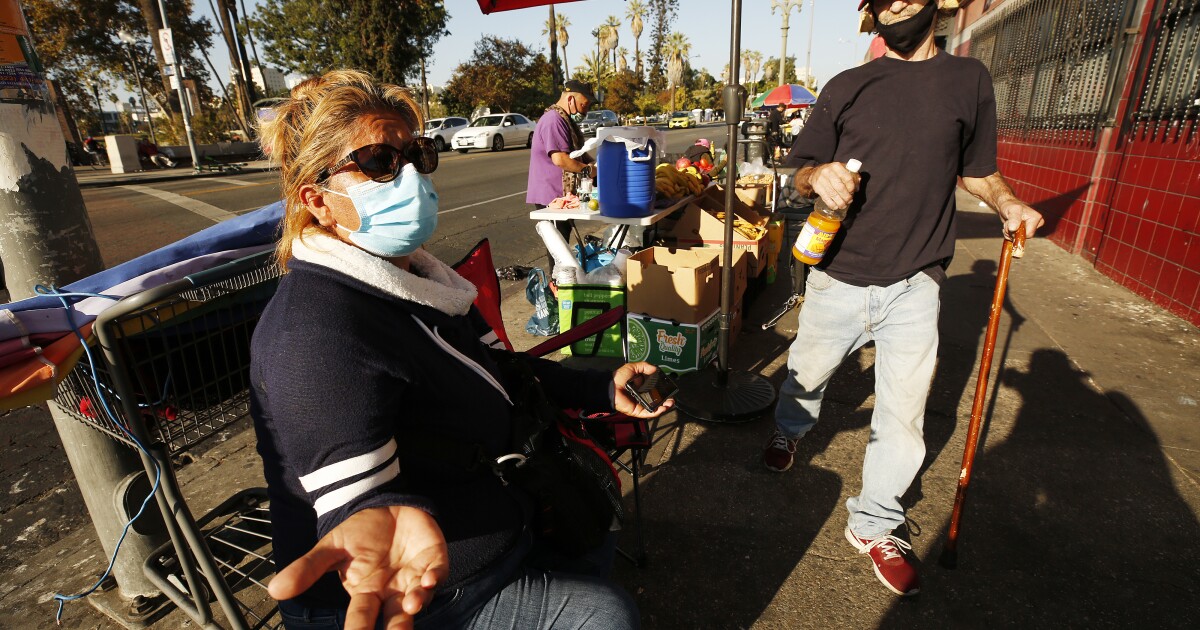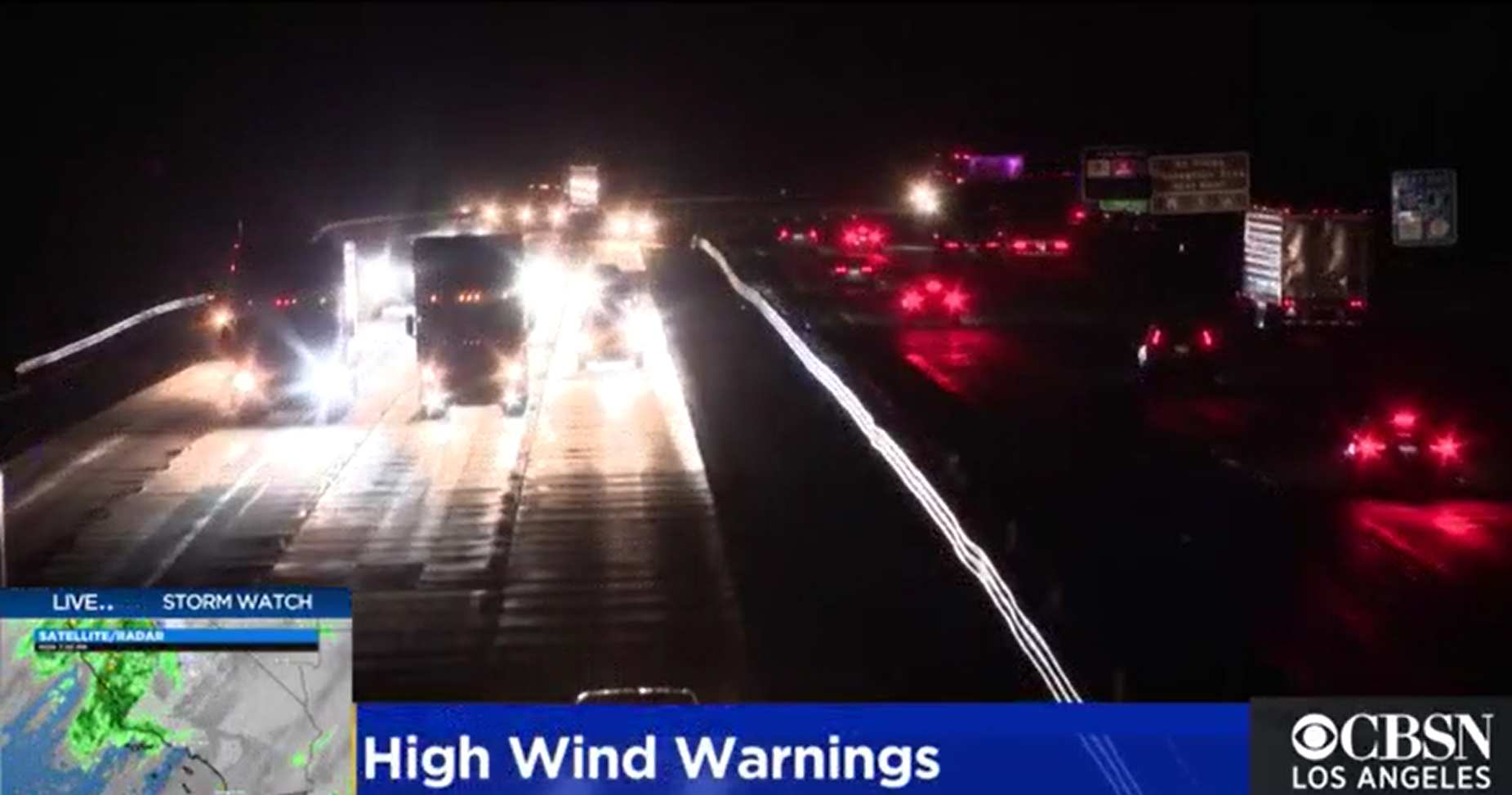That avenue taco you longed for must be authorized by now. As an alternative, hundreds of grocery distributors are banned from the Los Angeles sidewalk, denied entrepreneurship by legal guidelines that undermine the meals security rules that they purportedly shield.
With LA reluctant to reopen amid the COVID-19 pandemic, officers have eased laws to permit eating places to serve al fresco eating. However distributors providing LA’s authentic alfresco eating expertise are being denied the identical therapy. At this significant second, as many in authorities are working to deal with inequality exacerbated by the pandemic, we should prioritize truthful public well being requirements that promote financial justice. It additionally contains addressing the wants of low earnings avenue distributors to allow them to lastly serve your tacos and different iconic avenue meals dishes with the complete authorized safety they and also you deserve.
We must always have carried out that already. In 2018, California legislature handed Senate Act 946, calling on cities to cease issuing legal subpoenas and regulate, not ban, avenue gross sales. Following this, LA lifted its decade-long legal ban and arrange a licensing system to manage gross sales retailers. These had been groundbreaking victories for avenue distributors – however solely on paper.
Three years later, the employees behind the well-known Los Angeles meals vehicles proceed to face day by day fines and harassment for lack of permits. As of 2020, town has solely issued 165 permits to grocery distributors on the sidewalk, out of an estimated 10,000 eligible distributors.
This is because of a confused community of metropolis, district and state regulation. The town is not going to allow meals distributors to function till they obtain a county well being allow that itself complies with the necessities of the state meals code. To know how all of those guidelines match collectively, we have outlined every step a vendor should take to legally promote in LA. We had been shocked by what we discovered: a system designed to permit merchandising as a substitute makes it functionally unlawful. As?
A essential drawback is that approval requirements have been developed for big meals vehicles – not small avenue distributors. For many meals, laws place heavy tools calls for on 4 separate sinks, 20 gallons of water, suction, mechanical refrigeration, and huge meals storage capability. Because of this, the few expert carts available on the market value hundreds of {dollars}, and lots of are simply too heavy to push and too massive for sidewalks. To make issues worse, the state prohibits slicing fruit or protecting beforehand ready meals heat on a sidewalk, which creates a de facto ban on fruit carts and taco stands.
Poorly designed gadget necessities aren’t the one drawback. The regulation additionally requires avenue distributors to pay for entry to a small variety of costly commissioners for vehicles, whereas underutilized kitchens in frequent areas similar to faculties, eating places, and locations of worship are empty. To get a allow, you need to full an unbelievable variety of steps, none of that are defined in languages related to the immigrant neighborhood. Any vendor who can efficiently navigate this maze will then come throughout a surprising price ticket. There’s a minimal of $ 10,000 in startup prices plus $ 5,000 in annual charges for promoting unpackaged groceries. For staff who earn a median of $ 15,000 a yr, this quantities to a ban.
As an alternative of serving to distributors break down boundaries, native officers have created new boundaries – in some circumstances, actually placing up chain hyperlink fences to ban distributors from fashionable frequent areas like Echo Park and Avenue 26 Night time Mart. As an alternative of discovering options, the officers punish violations with tickets and car confiscation,
rob the sellers of their livelihoods. Raids are sometimes carried out by sheriff’s deputies who don’t have anything to do with implementing meals security laws.
The excellent news is that this damaged system might be mended within the quick time period by way of focused reforms that advance the dual objectives of selling gross sales alternatives and defending public well being.
First, lawmakers have to amend the grocery retail code to assist protected practices that distributors are already utilizing: decreasing sink necessities to affordable ranges; Setting smart requirements for the protected reheating of meals; Opening of licensed house kitchens for the preparation of meals; and the abolition of extreme legal penalties.
Second, the county well being division wants to regulate its administrative practices to assist troubled suppliers. A simple step ahead is to pre-approve blueprints for reasonably priced automobiles.
The county also needs to authorize underutilized communal kitchen areas for distributors to arrange meals and retailer tools, permit shared entry to extra sink amenities, cut back allow prices, and cease forcing armed regulation enforcement businesses to conduct compliance checks. None of those essential steps require authorities motion; every thing can now be carried out by the Ministry of Well being as a part of an ongoing pilot program within the district to guage and design new avenue gross sales laws.
Eradicating these boundaries is sweet not only for sellers, however for all Angelenos. Serving to salespeople succeed will increase wholesome meals choices for customers, present low-income and immigrant staff financial safety, and cut back enforcement prices.
We’re in a second when massive modifications are extra pressing and achievable than at some other time in our lives. Let’s use it to finish the work of legalizing avenue gross sales and delivering on the promise of a simply economic system for all LA residents.
Scott Cummings is the Robert Henigson Professor of Authorized Ethics on the UCLA Faculty of Legislation. Doug Smith is a senior government legal professional for the Group Growth Challenge at Public Counsel.














